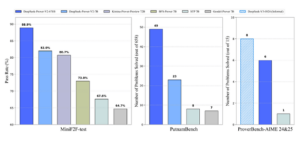Microsoft Introduces ‘Computer Use’ Feature, Enabling AI Agents to Effortlessly Navigate and Interact with Applications and Websites

AI Automation: Microsoft’s New Copilot Studio Feature
The tech industry is buzzing with excitement over advancements in artificial intelligence (AI) aimed at automating everyday tasks. Companies are continually striving to bring innovative features that simplify the user experience. Recently, OpenAI introduced its Operator, showcasing AI agents capable of performing tasks on behalf of users. Following this, Microsoft has unveiled a significant upgrade to its Copilot Studio that empowers AI agents to automatically interact with websites and applications.
Introducing the Computer-Use Feature
Microsoft aims to elevate the capabilities of Copilot Studio by introducing a feature called “computer use.” This allows AI agents to operate websites and apps as if they were real users. The goal? To save users from repetitive tasks that consume precious time. Unlike conventional tools that rely on built-in integrations or APIs, this transformative feature breaks new ground.
Businesses can harness this functionality in Copilot Studio to create AI agents that can perform various tasks, such as:
- Filling out reports
- Logging into websites
- Managing customer service inquiries
By enabling AI to take over these actions, Microsoft positions its platform as a more capable assistant that can adapt to user needs seamlessly.
The Insight from Microsoft Leadership
Charles Lamanna, a senior executive at Microsoft, explained the rationale behind this update. He emphasized that the new feature is designed to make AI agents mimic genuine user behavior. He stated:
This allows agents to handle tasks even when there is no API available to connect to the system directly. If a person can use the app, the agent can too.
With this enhancement, AI agents become more intelligent and trustworthy, especially when dealing with real-world assignments. Whether it’s processing invoices, conducting market research, or entering data on various platforms, Copilot Studio can generate agents well-suited for these roles.
Adaptive Automation
One exciting aspect of this feature is its ability for AI agents to adapt to changing software interfaces. This adaptability ensures that businesses can rely on consistent automation regardless of how websites or applications evolve over time. Earlier, Microsoft featured a tool called “Actions,” which allowed users to delegate tasks to Copilot while focusing on other responsibilities. However, the computer-use feature represents a more advanced approach geared toward business automation.
This latest development signifies an important shift in how businesses can leverage technology to enhance their operations. By furthering the capabilities of AI agents, Microsoft is not just keeping pace with competitors like OpenAI but is also paving the way for more sophisticated AI solutions in the workplace.
Through these advancements, the tech community is set to revolutionize the user experience, reducing the burden of monotonous tasks and increasing efficiency across various sectors. As Microsoft and other technology giants continue to innovate, the future of AI-driven automation looks promising, making daily operations smoother and more efficient.






